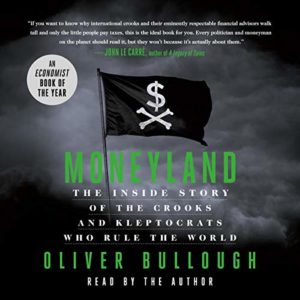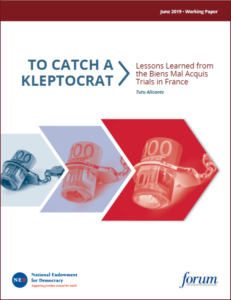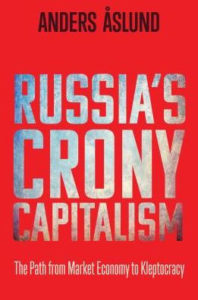
\kleptocracy shutterstock_
Ever since the earliest years of this century, Ukraine has been the contested frontier in a grand ideological struggle between democracy and kleptocracy, analyst Franklin Foer writes for The Atlantic.
Thousands of Ukraine’s citizens have perished in the half-decade-long struggle to achieve a Western dream: a democracy with close and lasting ties to the U.S.—a special relationship that would thrillingly demonstrate that Russian-style kleptocracy isn’t the only path a post-Soviet state can follow, The New Republic reports.
 The fact that America has been a bastion of anonymous shells is a blight on Washington’s claims to be fighting kleptocracy and grand corruption abroad, TNR’s Casey Michel adds.
The fact that America has been a bastion of anonymous shells is a blight on Washington’s claims to be fighting kleptocracy and grand corruption abroad, TNR’s Casey Michel adds.
In the latest episode of the Power 3.0 podcast, featured guest Oliver Bullough discusses how transnational kleptocracy—the process by which illicit money is stolen in one location, laundered through anonymous off-shore vehicles, and spent in jurisdictions where it is safe from interference—corrodes democratic and rules-based institutions. Oliver Bullough is an award-winning journalist, author, and commentator, specializing in the former Soviet Union and illicit money flows. His latest book, Moneyland: The Inside Story of the Crooks and Kleptocrats Who Rule the World, was named an Economist Book of the Year and the Sunday Times Business Book of the Year. Christopher Walker, NED vice president for studies and analysis, and Shanthi Kalathil, senior director of NED’s International Forum for Democratic Studies, cohost the conversation.
 In a bipartisan initiative, Representatives Tom Malinowski (NJ-07) and John Curtis (UT-03) this month introduced the Justice for Victims of Kleptocracy Act, developed with the support of the U.S. Helsinki Commission. The proposal directs the Department of Justice to list on a website the amount of money stolen from citizens of kleptocracies around the world and recovered by the United States..
In a bipartisan initiative, Representatives Tom Malinowski (NJ-07) and John Curtis (UT-03) this month introduced the Justice for Victims of Kleptocracy Act, developed with the support of the U.S. Helsinki Commission. The proposal directs the Department of Justice to list on a website the amount of money stolen from citizens of kleptocracies around the world and recovered by the United States..
“We must always remember that the number one victims of the Putin regime are the Russian people. Kremlin kleptocrats raid their pension funds and state coffers then live the high-life on their tax dollars. All the while, Putin and his cronies seek to distract the Russian people with foreign wars and fear-mongering. We see this pattern over and over around the world,” said Rep. Malinowski.
“The illegitimate ruler Nicholas Maduro violates the human rights and dignity of Venezuela’s citizens while enriching himself at the expense of his people, all while driving his nation into economic ruin with his disastrous policies,” said Curtis. “The Justice for Victims of Kleptocracy Act would shine a light on the extent of corruption against the people of Venezuela, Russia, and all those oppressed by corrupt authoritarians.”
 Other than self-enrichment, is there an alternate explanation for the persistence and centralization of corruption over the past two decades? asks Chris Miller, an assistant professor of international history at Tufts University, in a review of Anders Aslund’s “Russia’s Crony Capitalism: The Path From Market Economy to Kleptocracy.”
Other than self-enrichment, is there an alternate explanation for the persistence and centralization of corruption over the past two decades? asks Chris Miller, an assistant professor of international history at Tufts University, in a review of Anders Aslund’s “Russia’s Crony Capitalism: The Path From Market Economy to Kleptocracy.”
One could perhaps argue that corruption serves a political goal in providing a glue with which to stick together different elite groups, he writes for Russia Matters. But this cannot explain why so many of Putin’s friends have become billionaires. They have no independent political base, and aren’t likely to cross Putin. The wealth they have accumulated undercuts Putin’s claims to be governing in all Russians’ interest. A system of theft that both makes Russians poorer and serves the interest of only the narrowest sliver of the elite, as Aslund argues, cannot persist forever.







